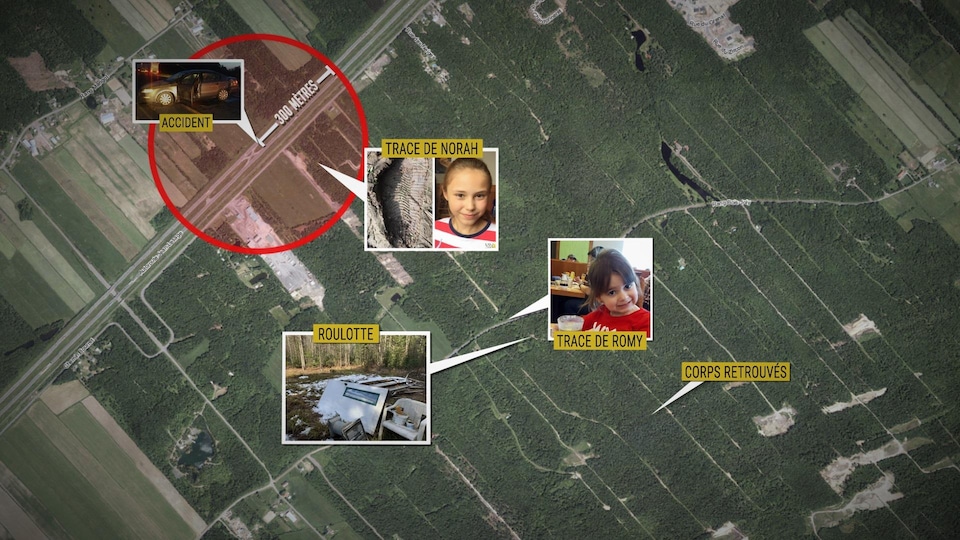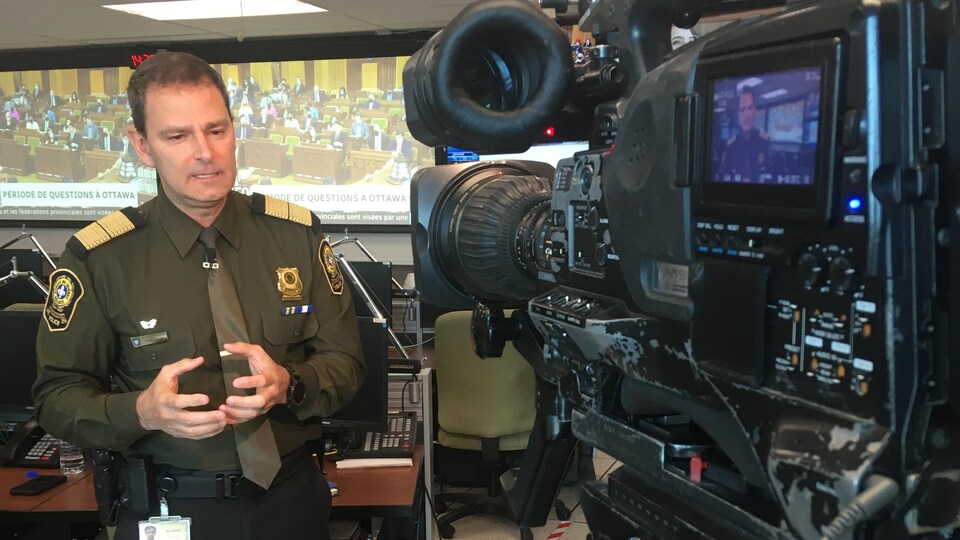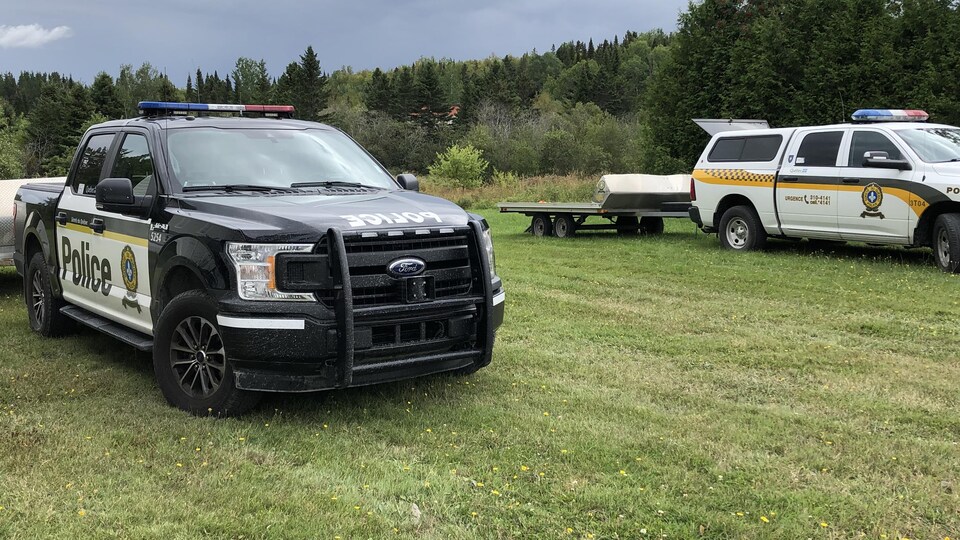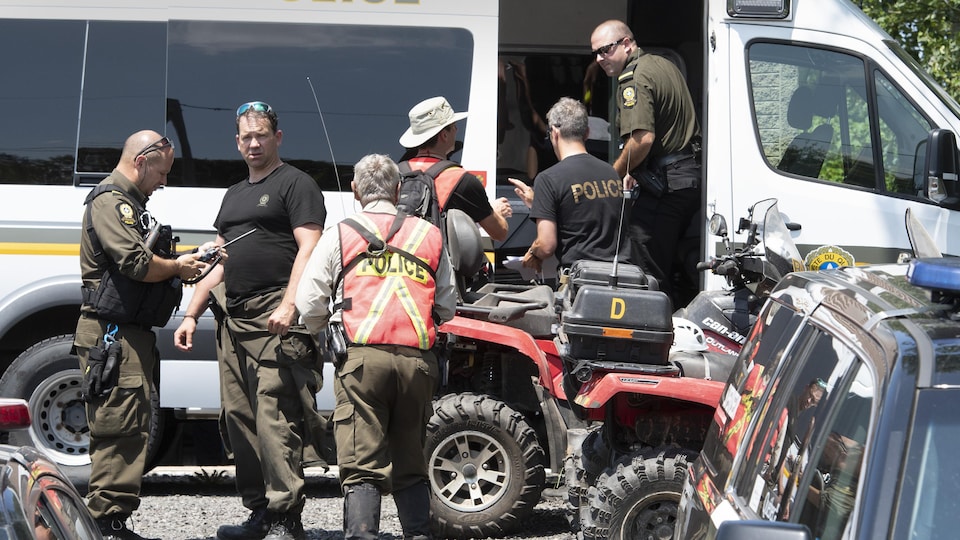The Sûreté du Québec (SQ) is reviewing its procedures to be faster and more efficient during operations to search for missing persons. Just over two months after the show’s revelations Investigation in the Saint-Apollinaire drama, senior management wants to insure the population.
A long report, broadcast on Investigation on March 10, the deficiencies were revealed in the July 2020 operation, in Saint-Apollinaire, to locate Norah, Romy and their father, Martin Carpentier, following a mysterious accident. Among these shortcomings not identified in the coroner’s report was the absence of a ground search coordinator.
Cops and former cops from SQ particularly criticized the lack of manpower as well as the non-organization of the search teams, which probably had a decisive effect, according to them, between the lives and deaths of the two sisters killed by their father.
Police officers also expressed their frustration and incompetence at the failures they observed in other search operations, which directed the removal and then reorganization of special search units that took place in 2019. .
Train more police
In an interview with Radio-Canada for the first time since the report was broadcast, Sûreté du Québec deputy director general Patrick Bélanger said he wanted to increase his staff in ground research.
He plans to double his team of coordinators from two to four and add three dog handlers, for a total of 19. SQ also aims to train some sixty additional patrol officers from posts in various areas MRC.
In the coming weeks, [les policiers] will be trained and equipped accordingly to be able to intervenesaid Patrick Bélanger.
In an internal memo sent on May 9, of which Radio-Canada obtained a copy, we read that training and equipment will be provided according to the Sûreté du Québec’s ability to provide it and members will be assigned to missions only when they have been trained.
” We want to accomplish this as soon as possible. It’s something that’s easy to orchestrate in mid-summer, late summer, early fall. “
The number of police officers who have received ground search training should rise from 125 to 192 by the end of the fall, including 51 search-focused teams based in three service points: Mascouche, Saint- Hubert and Quebec.
The purpose of SQ is to ensure the renewal of their training every year or every two years. Within the re -qualifications there are always simulations, skills to ensure that these people do not lose their expertise.assured Mr. Bélanger.
A new formula
Once trained, approximately 60 police of MRC was the first to be called in to come to reinforcement with 51 specialized police officers and engaged in research as needed.
Ang SQ so admitted, in this internal memo, that the formula adopted in 2019 – i.e., call highway police officers who have received brief training to fill search teams in case they disappear – doesn’t work according to plan .
This group [de policiers d’autoroute] is not often involved, because it is almost always assigned to other functions, which means that the request returns the positions MRCwith no training and equipment for this type of missioncan we read
In this letter, the operations of Saint-Apollinaire and Saint-Paule are cited as examples of events in which the police MRC who will soon receive their training may be called upon to intervene.
Ang SQ also plans to extend to other regions a pilot project conducted on the North Shore in recent months where eight police officers were trained to be assigned to search missions. Their duty is to begin the first steps of the operation while waiting for expert researchers to arrive as reinforcements.
When our teams arrive from Saint-Hubert, Mascouche or Quebec, most of the main work is done. […] So it’s better. Obviously, every minute, every hour counts in an extinction, so it really comes down to optimizing our research capabilities.explained Patrick Bélanger.
Status quo
Until the Sûreté du Québec achieves its goals, the intervention capacity will remain the same since the 2019 restructuring, i.e., 125 police trained for forest research.
On the other hand, since the events in Saint-Apollinaire, in 2020, the mandates of 51 police officers engaged in search operations have been reviewed to allow better usability by teams.
For the specific protection of personalities, we have found another pool within the organization that will make this a priority.said Mr. Bélanger.
In July 2020, when Martin Carpentier went missing with his daughters in Saint-Apollinaire, a dozen police officers specializing in research were in Lac-Saint-Jean to ensure the safety of Prime Minister François Legault.
unified command post
Another change in the event of a major operation involving ground search teams and criminal investigations: the SQ now wants to deploy one command post instead of one post for research and another for investigations.
Our key decision makers will come together to exchange a variety of information, the expertise of the researchers […] and all the information held by the investigations, putting everything in a pot to arrive at the best possible operational decisionsaid Mr. Bélanger.
He also mentioned that SQ realize, during large operations such as Saint-Apollinaire in 2020 or Sainte-Paule in 2021, that a unified command post allows for greater efficiency in the field.
Patrick Bélanger, on the other hand, refused to make a direct connection between the Carpentier case and the changes taking place.
Did the Carpentier affair trigger it all? I’ll tell you, no. We cannot help but use it to learn. However, due to the large increase in the number of search missions, the Sûreté has no choice but to organize and improve its search service offer.
Ang SQ argues that the number of search missions to find a missing person increased from 180 in 2018 to 428 in 2021.
While he admits that having resources in the summer is always a challenge, Patrick Bélanger wants to reassure the population: the Sûreté is present and can be seen responding to its research missions. We really want to show that the Sûreté is in action. The Sûreté is a learning organization.
Source: Radio-Canada



